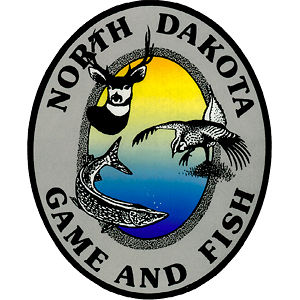
GRAND FORKS, N.D. (G&F) – A moose that found its way into Memorial Stadium on the campus of the University of North Dakota in Grand Forks was immobilized Sept. 3 by campus police and officials from the Chahinkapa Zoo in Wahpeton. The adult cow was then moved to a rural area approximately 5.5 miles west of the city.
North Dakota Game and Fish Department wildlife chief Jeb Williams said immobilization and relocation efforts were not recommended by the department due to the possibility of consumption and associated health hazard to humans.
“Conversations are ongoing with all parties to prevent this situation from occurring in the future,” Williams said. “While the moose was safely relocated and released back into its natural environment, the anesthetic drug and antibiotics used in this situation present a hazard to anyone consuming this meat as the withdrawal time for both drugs goes well into the archery hunting season.”
The archery season for moose opens Sept. 6 and runs through Sept. 29. The regular season begins Oct. 11 and continues through Nov. 3. A total of 20 any-moose licenses were issued in units M5 and M6, which are divided by U.S. Highway 2. The eastern boundary of M9, which includes 45 any and 75 antlerless licenses, is N.D. Highway 1, which is farther west of where the animal was relocated.
The anesthetic drug that was used is not labeled as FDA approved for human consumption, and research recommends a minimum 14-day withdrawal period. Williams said the antibiotic has a label recommendation of a 28-day withdrawal time before the meat should be consumed.
“We acknowledge that tranquilizing and relocating moose back to the wild is a popular choice with the public,” Williams said. “But in certain situations, it is not the most responsible solution. Our agency takes the use of drugs and the recommended withdrawal period very seriously, because we do not want to put hunters and others at risk due to our actions. This is simply a liability we are not willing to assume.”
Game and Fish deems it necessary to make the public aware of this concern, especially hunters and motorists. State law allows motorists who may experience a vehicle/moose collision to receive a permit to possess the animal.
“If a hunter or motorist encounters this type of a situation, we ask that you contact the department for more information and recommendations for consumption,” Williams said, while mentioning it is hard to determine whether the cow will stay in the area where it was relocated.
